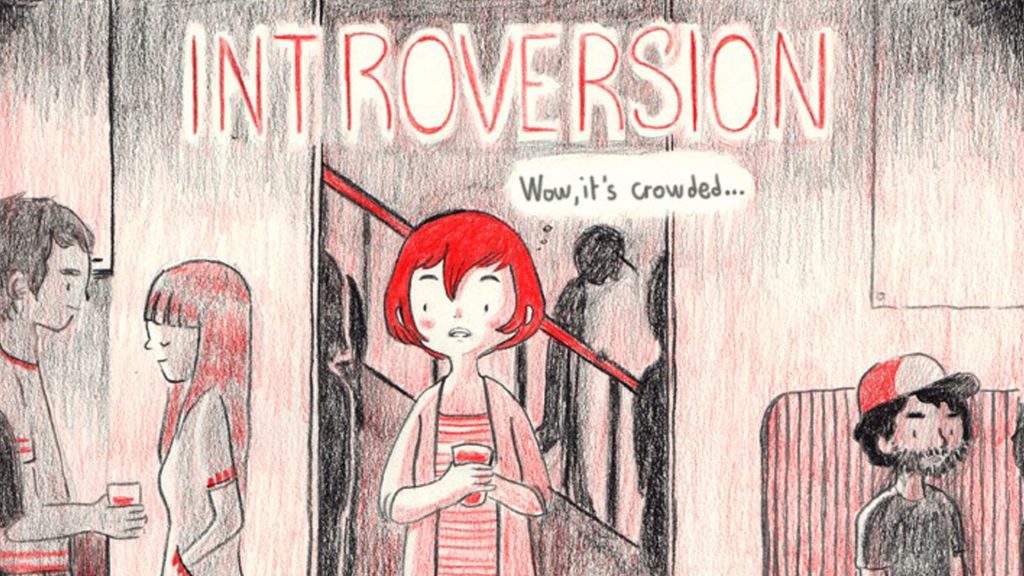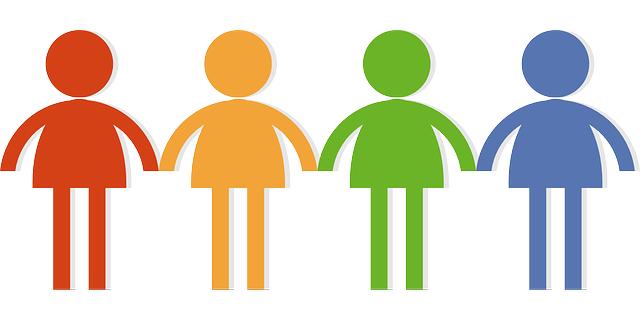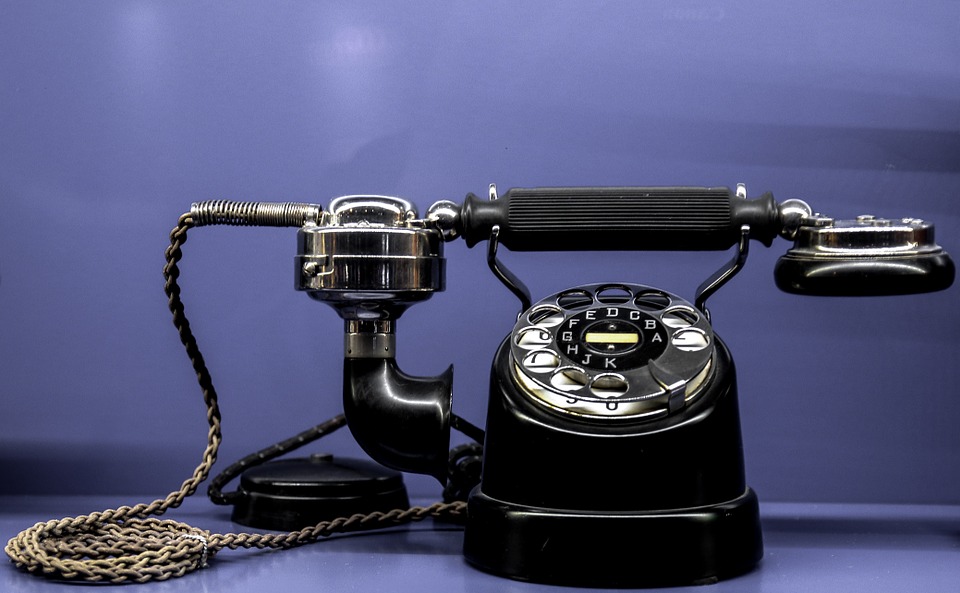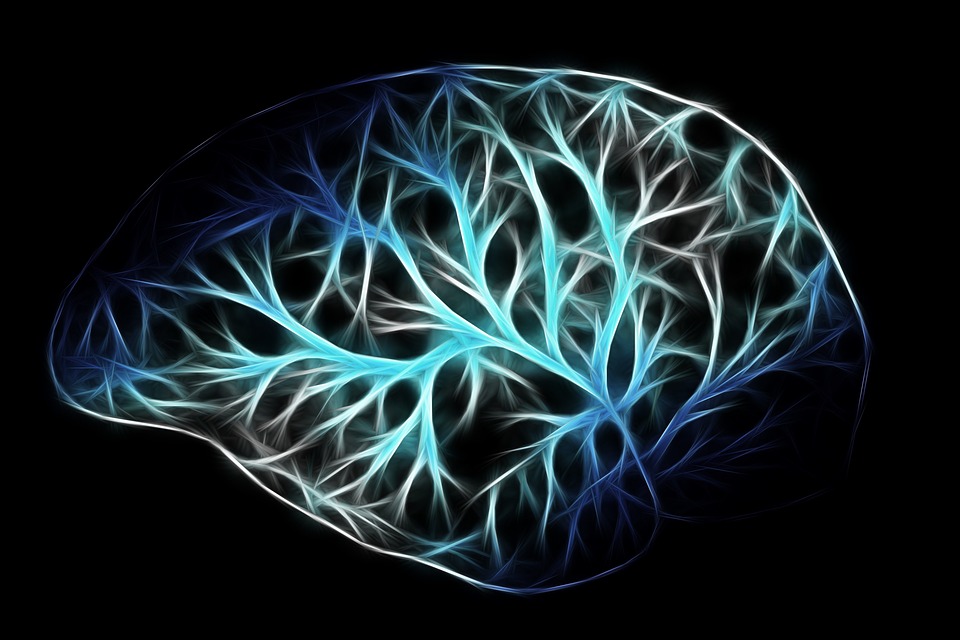10 Interesting Facts About Introverts

Roughly one third to half of the world’s population is made up of introverts. Introversion is commonly misunderstood today with many stereotypes and myths surrounding it. Luckily, however, with the help of the ever-evolving fields of science and technology, there has been a lot of research done that justifies introverts’ tendencies, habits, and needs. Psych2Go shares with you 10 interesting facts about introversion:

1. There are 4 types of introverts.
Researcher Jonathan Cheek states that it’s impossible for there to only be one type of introvert out there. He surveyed roughly 500 participants, ranging from the ages of 18-70 and asked them questions pertaining to how much solitude they need and how often they daydream. From the answers he gathered, Cheek created a model that spells the acronym STAR that explains the four different types of introverts that exist:
- Social: Social introversion is what is commonly accepted and understood as being the archetypal definition of introversion. People who identify as social introverts prefer small groups over large ones, or may prefer solitude altogether. According to Cheek, they like to stay at home with a book or computer, or hang out with close friends instead of going to parties with many unfamiliar faces. It’s different, however, from shyness, because there’s no anxiety attached to their driven needs of solitude.
- Thinking: Thinking introversion is one of the newer concepts of introversion today. People who identify as thinking introverts are introspective, thoughtful, and self-reflective. Unlike social introverts, they don’t have a strong need to stray from large social scenes. They’re often avid daydreamers with rich imaginations and a high capacity for creativity.
- Anxious: Anxious introverts seek time to be alone, because they often feel awkward and self-conscious. Unlike social introverts, anxious introverts experience painful shyness when they’re around new people. The anxiety doesn’t necessarily go away either when they’re alone because they let things play over and over again in their heads over what could’ve gone or went wrong.
- Restrained: People who identify as restrained introverts function on a slower pace and prefer to think before they speak and act. They are also known for being reserved. Restrained introverts take time to get things going, because they don’t let impulse affect their decision-making.

2. Introverts react quickly to new information, but are slower to monitor change.
According to Australian psychologist John Brebner, the brains of introverts create more excitation in the phase of stimulus analysis when situations call for them to analyze what is required of them to do next. For instance, when a phone rings, introverts generate more excitation in their brains; whereas, extroverts need to inhibit everything else going on in their heads in order to make a decision. When an introvert needs to prepare for action, however, they may hesitate longer to pick up the phone. An extrovert, on the other hand, answers the phone right away. While introverts are quick to reacting strongly to new situations, extroverts, in contrast, are quicker to register changes.

3. Introverts dread small talk.
Psychologist Laurie Helgoe, author of Introvert Power: Why Your Inner Life Is Your Hidden Strength, states that small talk blocks honest interaction. Introverts might come off as being disinterested in others, because they don’t like taking part in small talk. But, they only dread it because of the barriers it creates between them and others. Introverts want to feel connected; however, they prefer to make connections through authenticity. Deep and meaningful conversations are what they often crave for that help lower the walls.

4. Introverts need alone time.
This goes back to fact #1 for individuals who strongly identify as social introverts. According to research, the reason introverts need alone time is because they respond differently than extroverts do to rewards. Rewards include food, money, sex, and social status. Although introverts do care about eating, the income that they earn, and cultivating relationships with others, they are less driven and experience less enthusiasm for the possibilities of them. Extroverts, in contrast, are more energized by working for those rewards, which is why they are also prone to instant gratification more often than introverts.

5. Introverts aren’t risk-averse, but they are more careful and calculated about what risks they choose to take.
This is due to the biological makeup of the brain. Dopamine is a neurotransmitter associated with sensation-seeking, risks, and new adventures. According to research, there is a difference of dopamine activity in the brains of introverts compared to those of extroverts. This isn’t because introverts have less dopamine in their brains than extroverts. Both have the same amount. However, introverts use less activity from the region of their brain that generates dopamine.

6. Introverts are deep thinkers.
This goes back to fact #1 for individuals who strongly identify as thinking introverts. Since introverts use less activity from dopamine, they rely more often on a neurotransmitter called acetylcholine. Acetylcholine, just like dopamine, is linked to pleasure. The difference, however, lies in pleasure that is produced from turning inwards. This allows the individual to ponder and reflect deeply, and focus on one task with great attention for an extended period of time. Acetylcholine also influences one to prefer calm, quiet settings over loud, crowded places.

7. Introverts are more creative.
Introverts need solitude to recharge, but it is also within solitude that they find creativity. Psychologist Mihaly Csikszentmihalyi discovered that teenagers who have a hard time being alone were less likely to develop their creative skills. Most artists and writers who identify as introverts do their best work when they’re by themselves as opposed to working in group settings. Researcher Reed Larson also found that adolescents feel less self-conscious when they’re alone; therefore, it helps individuals feel safe taking more risks that allows their creative juices to flow.

8. Introverts like the rain.
Rain creates white noise that often attracts introverts, because of the opportunities it brings to seek solitude. Its calming effect also helps introverts derive pleasure from it as they can turn inwards and escape within themselves for the time being. Rain helps lower expectations for the day and isn’t as overstimulating as other weather days with the overbearing sun.

9. Pretending to be extroverted for introverts can affect their performance negatively.
Researchers discovered that introverted participants who act extroverted have showed slower reaction times on cognitive tests than introverts who were allowed to be themselves. This is because the time introverts spend on pretending to be the people they aren’t naturally wired to be causes depletion that distracts and disrupts their usual ways of performance. It’s important to realize and acknowledge this, since the world is so used to trying to mold introverts into becoming extroverts.

10. Happiness might not be a top priority for introverts, and it’s actually okay.
Sounds strange, right? Especially when we live in a culture that emphasizes happiness so much. But, according to psychologist Maya Tamir of Boston College, introverts prefer to maintain a neutral emotional state when presented with tasks, such as taking a test, giving a speech, or thinking rationally. This is because happiness, an arousing emotion, may cause introverts to feel distracted that get in their way of performing those tasks efficiently. Extroverts, however, prefer happiness when completing such tasks because it acts as a motivator.
Are you an introvert? Did you find these facts to be relevant and valuable? Leave a comment down below!
References:
Cooper, B. (2016, March 30). What Creative People Understand About the Importance of Being Alone. Quartz. Retrieved September 14, 2017.
Dahl, M. (2015, June 25). So Apparently There Are 4 Kinds of Introversion. NY Mag. Retrieved September 14, 2017.
Granneman, J. (2016, January 13). The Real Reason Introverts Dread Small Talk. Huffington Post. Retrieved September 14, 2017.
Granneman, J. (2016, August 13). This Is the Scientific Explanation for Why Introverts Like Being Alone. Retrieved September 14, 2017.
Granneman, J. (2017). Why Introverts and Extroverts Are Different: The Science. Retrieved September 14, 2017.
Helgoe, L. (2010, September 1). Revenge of the Introvert. Psychology Today. Retrieved September 14, 2017.
P&Q. (2017, January 6). Why Introverts Like the Rain. Retrieved September 14, 2017.
Whitbourne, S. (2013, July 9). An In-Depth Look at How Introverts Think. Psychology Today. Retrieved September 14, 2017.




thank u so much…i finally able to understand myself…..it almost answer all my qiestions….
Hi Ablas, thanks so much for reading! I’m glad you are able to understand yourself more! =) I hope you have a great day!
Hi.. Thank you so much… I felt like i read my own biography.. ? its ok to be an introvert ?
Hi Vapegod, thanks so much for reading. Yes, it is definitely okay to be an introvert. I’m glad you were able to relate to the article. I hope you have a great day!
I’m a mix of all 4 kinds of introversion + lots of ADD + a slow possessing speed 🙂
I like to say I march to my own drummmer! Can anyone relate?
How can I know whether I’m introvert or not, though there are some points which goes with me word by word. Plus getting anxiety and crying over something i love is part of introversion?
Hi Jawad, thanks for reading. You can start by taking the Myers-Briggs personality test to see if you test as an introvert or extrovert. =) I hope you have a great day!
Hi Katarzyna, thanks so much for reading. I myself also march to the beat of my own drum. =)
There are 4 types of introverts and I learned I am all of them too. I love that I dread small talk, I love how the rain calms me, I love how I tend to think deeply, and I love that I am creative. Most of all, I love how this article talked about all the things other people don’t easily understand about me.
Hi Rosshelle, thank you for reading. =) That is some amazing self-love you have established! I love that kind of positivity and confidence. I’m glad you were able to relate to the article. I hope you have a great day!
#1. Makes it sound like you can only be one way or another, but i relate to all 4 types. I feel its more of a spectrom then exclusive categories.
Hi Megan, thanks so much for reading. =) That’s an interesting way to look at it. Psychologist Jonathan Check categorized introversion based on his STAR model, but I can also understand why you consider the 4 types as more of a spectrum. Carl Jung who came up with the personality concept of introversion and extroversion believes we are all on the spectrum somewhere. No two introverts or extroverts are alike. It is definitely possible to be a mixture of the 4 types of introverts. =) It’s a great point you brought up. I hope you have a great day!
…some of those types may be different phases in the same person…
Very informative article on introverts so far I came accross. Thanks. I think I am an introvert but I don’t feel like to have a family of my own because I like solitude very much. What the research says? Is it common?
Hi T. Rahman, thanks so much for reading. I’m glad you found the article informative. =) Solitude is amazing! So, I understand not wanting to have a family of your own. It can be a lot of responsibility. Introverts definitely value their alone time, yes. Research has shown that introverts need to recharge and go off on their own, so it’s completely healthy and normal. =) I hope you have a great day!
[…] to how there are 4 different types of introverts based on psychologist Jonathan Check’s research, according to Carl Jung’s personality theory, […]
I am an introvert and I completely agree with u mam….
Hi Faizan, thanks so much for reading! =) I’m glad you were able to relate to the article. I hope you have a great day!
[…] if you enjoyed this article, you may also like 5 Reasons to Surround Yourself with Extroverts or 10 Interesting Facts About Introverts from […]
[…] you enjoyed this article, you may also like 5 Reasons to Surround Yourself with Extroverts or 10 Interesting Facts About Introverts from […]
Hey , this text really empowers me to keep who I am and not search for complicated things … I’m happy I’m not alona to face what I am
Thank you for this article! It was a great read. I often find it difficult to put into words what or how I feel or even why, especially when explaining it to others who struggle to understand. This article is very informative and I think incredibly helpful in illuminating the way we function. It helps not only those whe seek to better understand themselves, but also helps those who want to understand others. It helps to show people that there is nothing wrong or we’re not sick, just a different human that processes and sees things differently.
Can there be a mixed type of introvert? How can you tell between an introvert and an extrovert that has been left alone for too long and got aquainted to it? I have always consider myself as an introvert and there are a lot of facts above that I can relate to, but still , from time to time I felt like an extrovert.
Hi Oiton, yes, it is fully possible to be a mixture. The term is called ambivert. As the years progress, I’m finding myself more and have discovered that I am an ambivert! Here is a video from our channel that you may find yourself relating to:
https://www.youtube.com/watch?v=mdd74Gjqogo
If you find it rings true, be sure to subscribe for more helpful content! 🙂
This article explains a lot about me, I felt identify in so many ways. When it comes to the 4 types of introverts personality, I do find a little of myself to fit in this 4 categories. It’s great that there’s work and research getting done to explain and accept introverts and not judgement for not fitting in, this lower the anxiety that belongings to a social group brings.
Yes, i’m fully aware of this article. I’ve known my self that I am really an introvert in the first place. I’ve like reading an article about an introvert person. I am fully aware of this being an introvert and at the same time I’m also a natural empath. Its also triggers for being a Scorpio my zodiac sign. All in one in one person and that’s me.
That really helped a lot… I always try to be social but it seems impossible as I am so self conscious.. I hesitate a lot in face to face conversions.. it doesn’t seem comfortable.. yes I think a lot nd keep my friend circle small but at the same time I search for a soulmate.. I don’t hve a best frnd or any person of that sort in my life but I want one.. I am very good in theory but weak at practicals…. I deal in permanent things.. thnks a lot for your research.. it gives a great satisfaction to know myself more…one last question– #trying to be an extrovert is a right thing? though I am not comfortable but I just want to have a normal conversation rather than a hesitated one.. #thnks
Hi, I was hoping to use this as a source for a report i am working on and was wondering about your education and experience with this topic.
Hi Josh, thanks so much for considering this piece helpful. 🙂 My education background consists of a BA in English with a minor in Education. I’ve written many articles on introversion and always cite my references for the research I do when I produce content on Psych2Go. I hope that helps answer your question! 🙂
Hey , thank you so much . You really helped me in knowing myself more.
I was worried that why i am not like others ,but you told me that i am much better than other at something.
Hi Satyendra, I’m so glad I helped you accept yourself more. 🙂 Be proud that you’re an introvert!
Spot on. I was trying to find something for my partner to look at to better understand me. This will help. Thanks.
Hi Daniel, so glad you were able to find the article helpful! Hope your partner does, too! 🙂 Best of luck!
really needed this, thank you so very much for this article, its true that world is use to change an introvert to an extrovert, but why…the process can be sophisticating , it can lead to lower self esteem and what more. well, the last point is very true and i myself experienced it.its awful.
Every extrovert should read this.
But Im little confuse which type I’m, some qualities I have in me but you put in the 4types and 2 best suites me.
And I don’t know why those extroverts don’t gave us our space, I dont like to hangout with them, attend parties, or go to events. The crowded area makes me feel uncomfortable.But they keep calling even I said no.
What to do to those.
Bay the way you wrote it nice catherine..
IT good to be introvert but this page didn’t explain anything about inner power
I’m and introvert I don’t mind large groups and I’m not shy I just like my alone time thats how I like to relax some find it strange that people like me prefer to be tucked away then out partying I destress by myself and like to be alone. But I’m still a people person and love everyone
I think i no longer understand myself anymore! In my local area i am known for singing in public, yet i crave solitude, i get so fatiuged. After a gig i hate to get caught up talking with anybody which can sometime appear rude (i dont enjoy being rude because people are often just nice and say positive things). I am something like a perfectionist with music and performance! OCD almost! I did enjoy the article tho, thank you!
Gary